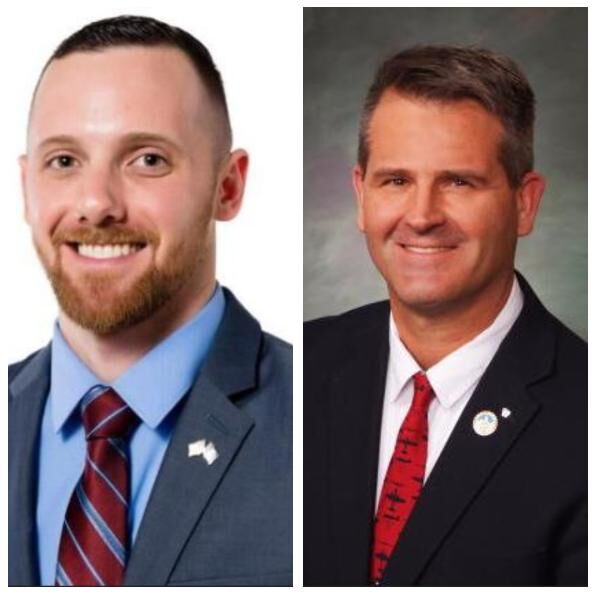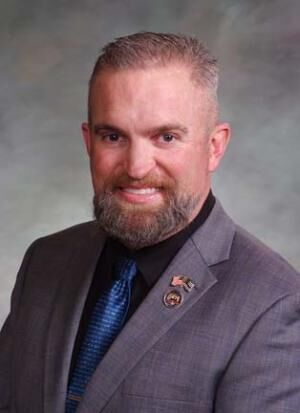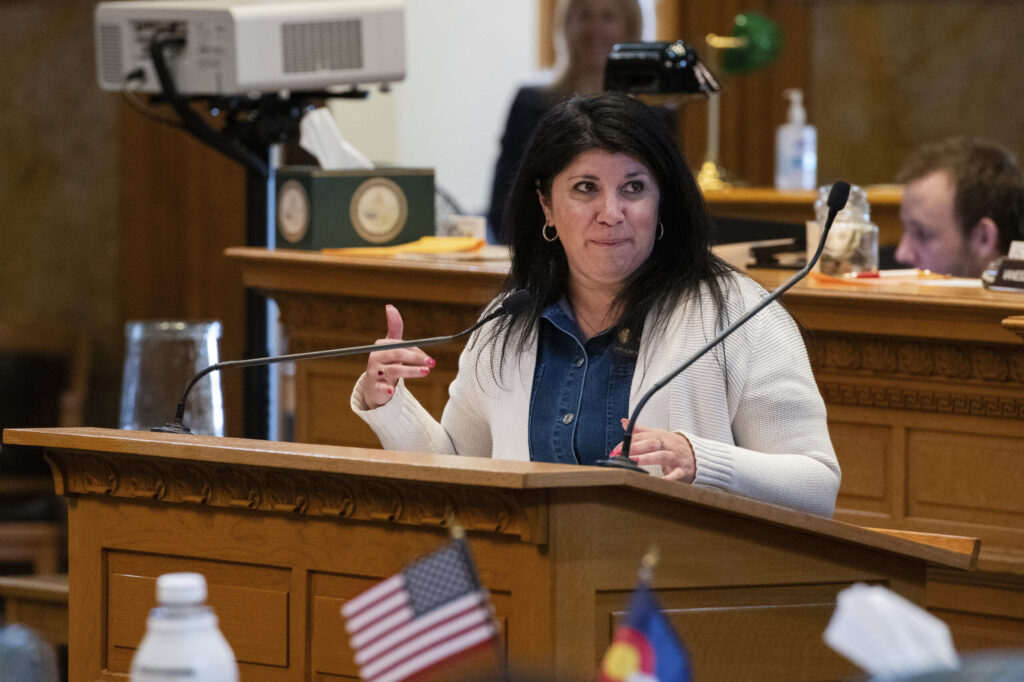House debate on state budget is short – but not sweet

Beef sticks and nuclear power and wolves.
Those are among the topics of amendments lawmakers offered in the state House Wednesday to modify the 2022-23 state budget package contained in the Long Appropriations Bill and more than a dozen additional measures designed to help balance the budget.
The Long Bill and its additional measures won preliminary approval early Wednesday evening and will head to final votes Thursday.
The $36.4 billion budget is more than $3 billion higher than current spending, fueled largely by a surge in one-time general fund dollars.
The budget does not include almost $3 billion in federal American Rescue Plan Act dollars. Bills to spend those funds on affordable housing, behavioral health and economic recovery are still working their way through the legislative process.
Lawmakers pushed for 57 amendments during Wednesday’s daylong debate.
Many are referred to as “message” amendments, and particularly in an election year, are intended to either score points with lawmakers’ constituents or put colleagues from the other party on the spot.
Lawmakers sought recorded votes on 32 of those amendments.
Joint Budget Committee Democrats advocated against passage of all of the amendments, a standard practice. Despite that opposition, a dozen amendments won approval from the House, adding $63.5 million in cash and general fund dollars to the budget. They included the following:
- $50 million from the economic recovery and relief cash fund, part of the state’s American Rescue Plan Act money, for the community revitalization fund within the governor’s Office of Economic Development and International Trade, an amendment brought by Reps. Brianna Titone, D-Arvada, and Shane Sandridge, R-Colorado Springs
- an amendment stripping the Office of Public Guardianship, within the Judicial Department, of $1.5 million in cash funds to expand the troubled program into two rural judicial districts, and sponsored by Democratic Reps. Meg Froelich of Greenwood Village, Adrienne Benavidez of Adams County and Republican Rep. Stephanie Luck of Penrose
- $3 million from the marijuana tax cash fund for the Department of Law’s consumer protection division, an amendment from Rep. Marc Snyder, D-Manitou Springs, and Kevin Van Winkle, R-Highlands Ranch
- $75,000 in general fund to Colorado State University to buy from the nonprofit Beef Sticks for Backpacks program, a Larimer County program that distributes beef sticks to school kids
- $100,000 in general fund dollars to Colorado State University to spend on the AgNext Climate Change program
- an amendment from House Minority Leader Hugh McKean of Loveland to add $2.3 million in cash funds to boost pay for state patrol troopers by 3%
- an amendment from Rep. Terri Carver, R-Colorado Springs, to add $500,000 in general funds for Court Appointed Special Advocates
- $75,000 in general funds for the Agricultural Leadership Program in the Department of Agriculture, sponsored by Rep. Marc Catlin, R-Delta
- an amendment from Reps. Dylan Roberts, D-Eagle and Perry Will, R-New Castle, that would add $1.9 million in general funds related to wolf reintroduction and management in the Department of Natural Resources. (Roberts is running for a Senate seat in which the wolf reintroduction program is deeply unpopular).
- $1 million in general funds for the Judicial Department for its Eviction Legal Defense Fund, and
- $2 million more from the general fund for a Collaborative Management Program and $3 million for the Tony Grampsas Youth Services Program, both within the Department of Human Services.
Some of the rejected amendments included:
- funding cuts to the Charter School Institute that Reps. Adrienne Benavidez, D-Adams County, and Cathy Kipp, D-Fort Collins, proposed
- across-the-board cuts to the state budget and elimination of the Healthy Kids survey in the Colorado Department of Public Health and Environment, perennial targets of Reps. Patrick Neville, R-Castle Rock and Dave Williams, R-Colorado Springs
- a Neville-Van Winkle request for $30 million to resuscitate a school security program that had been allowed to lapse, and which failed on a 32-32 vote, with Williams excused.
Another Neville-Williams amendment sought to reject all federal funds, claiming those funds drive up inflation and the national debt.
Republicans also offered amendments to direct $700 million to the Public Employees’ Retirement Association and to cover the red ink in the Unemployment Insurance Trust Fund, both rejected.
Kipp, the Fort Collins Democrat, told her House colleagues that her amendment to reduce the Charter School Institute’s funding by $7 million is an effort to fund drivers license testing in the Department of Revenue. Private providers charge whatever the market will bear for those tests – a lot more than DMV’s $15. One provider, the Colorado Driving Institute in Boulder, charges $80 per test and $60 for a retest.
The Charter School Institute, an independent agency created by the General Assembly and which operates under the state Department of Education, authorizes charter schools in districts that don’t have exclusive charter authority.
Meanwhile, a McKean amendment sought $100,000 for a feasibility study on small modular nuclear reactors, an attempt to revive legislation that died earlier in the session.
Republican Reps. Andy Pico of Colorado Springs and Will also targeted the new state collective bargaining agreement with Colorado WINS, the state employee union. Their amendment would have taken $500,000 in general fund dollars, intended to compensate agencies for lost time for their employees who are union stewards, and direct that money to search and rescue operations.
A McKean and Rep. Dan Woog, R-Erie amendment, which attempted to add a “footnote” to the Long Bill to direct the Colorado Oil and Gas Conservation Commission to approve any oil or gas well permit within 90 days of application, drew Rep. Richard Holtorf, R-Akron to the microphone for a fiery speech.
Holtorf called the amendment the most important one lawmakers will consider.
“We promote energy policy that allows Western Europe to be reliant on Russian oil and gas because we don’t want to develop our energy resources,” he said. Developing that energy policy through the “footnote” is the first step, Holtorf added.
If the state were to fully develop its energy resources, it wouldn’t need ARPA dollars, he said.
He called for a “yes” vote on the amendment “for the future of Colorado, for the future of the United States, for the future and freedom of Western Europe and for the future of victory against Russia, who is trying to expand their reach across the whole world and fund their war machines that is killing Ukrainians today.”
“I call that blood on your hands when you promote that!” he thundered.
While lawmakers were successful in adding to the budget, those victories could be short-lived; amendments are traditionally stripped off the Long Bill by the appropriations committee once the bill reaches the second chamber.













